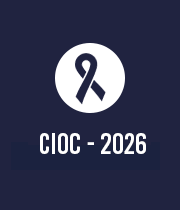Title : Epigenetic marker on DNA regulates PARP inhibitor resistance
Abstract:
Poly (ADP-ribose) polymerase inhibitor (PARPi) -induced synthetic lethality of BRCA-deficient cells is being utilized to treat breast and ovarian tumors. However, emergence of resistance to PARPi remains a major concern and understanding resistance mechanisms is of utmost clinical importance. In addition, it provides mechanistic insights into biological processes that are affected by BRCA-deficiency. To identify new regulators of PARPi-resistance in BRCA2-mutant cells, we performed a genome wide siRNA screen in mouse embryonic stem cells (mESCs). We found Ten Eleven Translocation 2 (TET2) loss contributes to resistance to PARPi (Olaparib). Validation of knockdown of TET family of proteins in BRCA2 deficient cells exhibited chemoresistance to not only olaparib but to other PARPi such as Veliparib, Talazoparib and platinum-based drugs such as cisplatin. TET2 is a metabolic enzyme that oxidizes 5-methylcytosine (5mC) to 5-hydroxymethycytosine (5hmC), 5-formylcytosine (5fC) and 5-carboxylcytosine (5CaC) during DNA demethylation. Interestingly, we found that TET2 knockdown protects stalled replication forks in BRCA2 deficient cells. Replication fork protection is attributed to the reduction in 5hmC levels on the chromatin and not to changes in the expression of proteins associated with replication fork integrity. Proximity ligation assay revealed that 5hmC is localized on replication fork. Furthermore, we show that increase in 5hmC due to Vitamin C can induce degradation of stalled replication forks and cause genomic instability. We also demonstrate that Base Excision Repair associated apurinic/apyrimidinic endonuclease, APE1, is responsible for degradation of 5hmC, 5fC and 5CaC containing replication fork. Vitamin C is cofactor for TET proteins. Combined treatment of Vitamin C and Olaparib resensitized PARP inhibitor resistance cells to Olaparib. Our findings reveal a novel role for 5hmC, an epigenetic mark on the DNA, in maintaining the integrity of stalled RF and PARP inhibitor sensitivity. Future experiments are focused on increasing 5hmC levels to resensitize chemoresistant BRCA2 tumors.



